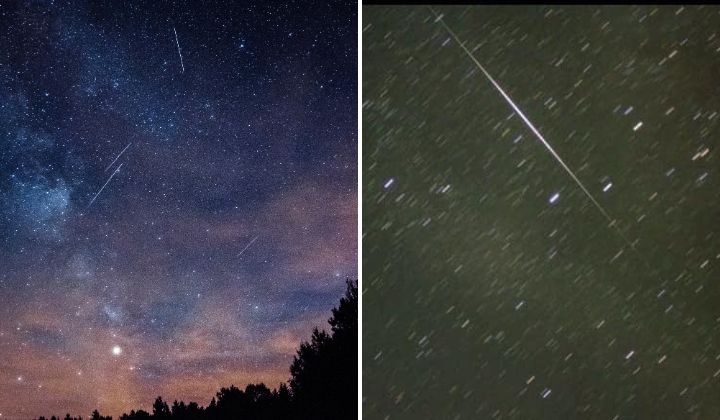Where Can I Watch The Perseids Meteor Shower Tonight In Malaysia?
Planetarium Negara has announced that the Perseids meteor shower is at its peak tonight until the early morning of 14 August.

Subscribe to our FREE Newsletter or Telegram channel for the latest stories and updates.
Now that the state elections are over and it’s a public holiday for Selangor tomorrow, it’s time to look up at the sky and let out a big sigh!
Jokes aside, it’s really a good time to gawk at the night skies tonight.
Planetarium Negara has announced that the Perseid meteor shower will be at its peak from 13 to 14 August 2023. The meteor shower actually started on 17 July and will end by 24 August.
However, the shower will reach a maximum rate of 110 meteors per hour or 2 meteors per minute tonight from 9pm to the early morning hours of 14 August.
Info@Planetarium 140
— PlanetariumNegara (@PlanetariumKL) August 13, 2023
Hujan Meteor Perseids 13 Ogos 2023 (Ahad)
Maksimum 09:00 malam, 13 Ogos 2023 (Ahad) hingga awal pagi 14 Ogos 2023 (Isnin) waktu Malaysia.
E-book KALENDAR ASTRONOMI 2023 boleh dimuatturun di laman sesawang Planetarium Negara.
Pautan: https://t.co/BEgKzczBTB pic.twitter.com/Wb0RC8LQAl
Where to watch the Perseids meteor shower in Malaysia?
It’ll be hard to view the astronomical phenomenon in cities with light pollution, so the best bet is to head out to dark areas with clear night skies.
The Perseids meteor shower is said to be the best meteor shower of the year by NASA due to its “reliability and the potential for spectacular fireballs.”
Due to this, people have compiled a list of the best places to catch the magnificent “sky performance” over the years.
Here are some of the best places to watch the Perseids meteor shower in Malaysia:
- Cameron Highlands, Pahang
- Janda Baik, Pahang
- Pulau Tioman, Pahang
- Broga Hills, Selangor
- Sungai Selangor Dam
- Bukit Tabur, Selangor
- Batu Dam, Selangor
- Kuala Selangor
- Kampung Teluk Pelanduk, Port Dickson
- Pantai Malindo, Penang
- Tanjung Simpang Mengayau, Sabah
You can view the meteor shower with the naked eye from any direction in the night sky. You do not need any tools like a telescope.
The meteor got its name from the constellation Perseus, where it appears to radiate from. Locating Perseus with a stargazing app is a good place to start if you need help locating the elusive streaks of light.
If you fear that you’ll miss out on watching the meteor shower because you live in the city, the alternative is to look for live streams of the event.
Sabah-based group Dark Sky Malaysia had a live stream to watch the Perseids meteor shower from 12 to 13 August on its Facebook and Youtube.
Share your thoughts with us via TRP’s Facebook, Twitter, Instagram, or Threads.





